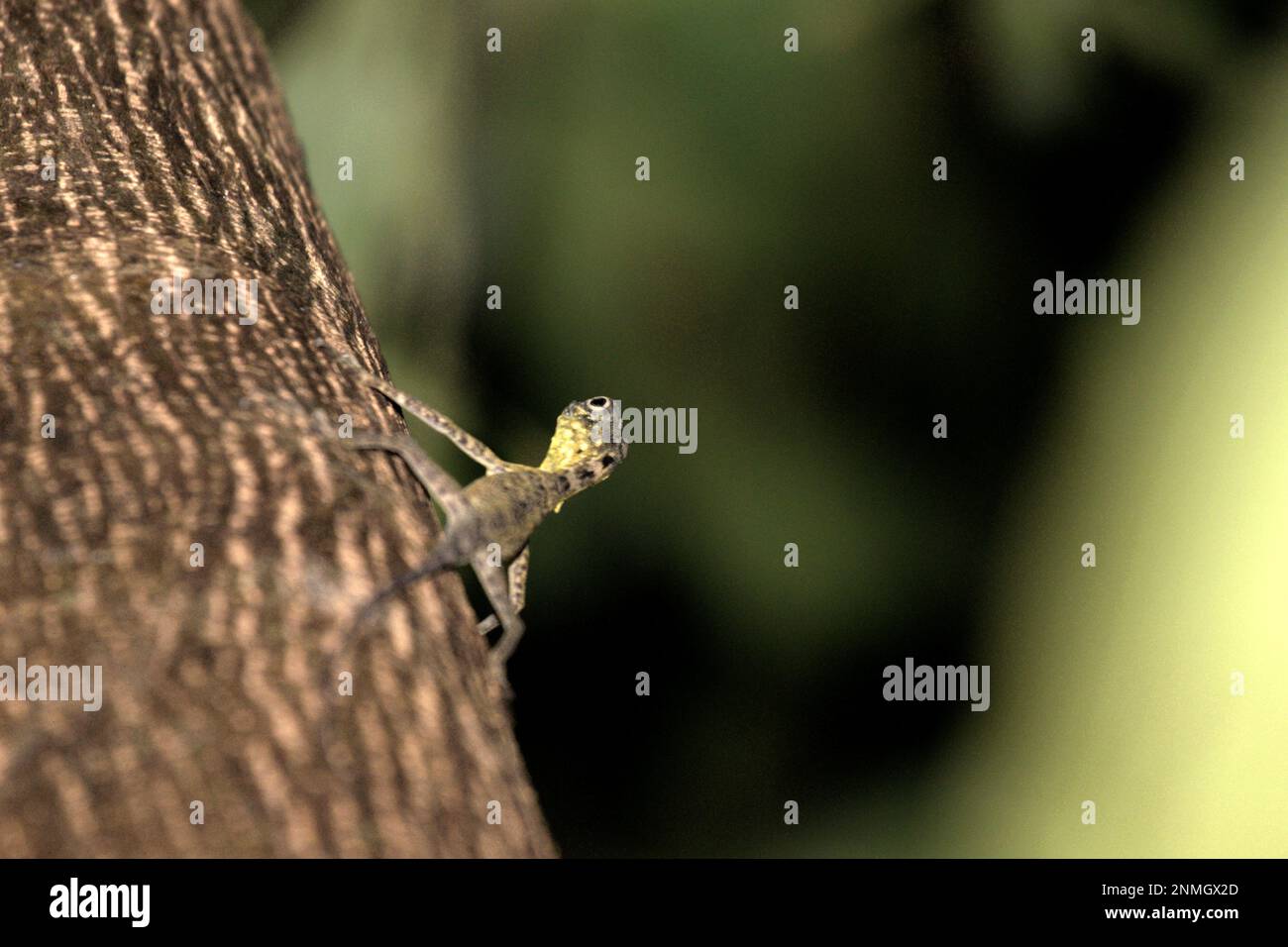A Sulawesi lined gliding lizard (Draco spilonotus) moving on a tree in Tangkoko Nature Reserves, North Sulawesi, Indonesia. Latest research suggests that reptile richness is likely to decrease significantly across most parts of the world with ongoing future climate change. "This effect, in addition to considerable impacts on species range extent, overlap and position, was visible across lizards, snakes and turtles alike," wrote a team of scientists led by Matthias Biber (Department for Life Science Systems, School of Life Sciences, Technical University of Munich, Freising).

Image details
Contributor:
Pacific Imagica / Alamy Stock PhotoImage ID:
2NMGX2DFile size:
27.1 MB (1,000.4 KB Compressed download)Releases:
Model - no | Property - noDo I need a release?Dimensions:
3772 x 2515 px | 31.9 x 21.3 cm | 12.6 x 8.4 inches | 300dpiDate taken:
15 November 2008Location:
Tangkoko Nature Reserves, North Sulawesi, IndonesiaMore information:
This image could have imperfections as it’s either historical or reportage.
A Sulawesi lined gliding lizard (Draco spilonotus) moving on a tree in Tangkoko Nature Reserves, North Sulawesi, Indonesia. Latest research suggests that reptile richness is likely to decrease significantly across most parts of the world with ongoing future climate change. "This effect, in addition to considerable impacts on species range extent, overlap and position, was visible across lizards, snakes and turtles alike, " wrote a team of scientists led by Matthias Biber (Department for Life Science Systems, School of Life Sciences, Technical University of Munich, Freising) in their May 2022 paper first published on Global Ecology and Biogeography; accessed through Wiley online library._ "Together with other anthropogenic impacts, such as habitat loss and harvesting of species, this is a cause for concern. Given the historical lack of global reptile distributions, this calls for a re-assessment of global reptile conservation efforts, with a specific focus on anticipated future climate change, " they added._ According to another team of scientists, Deanna H. Olson and Daniel Saenz, many reptiles are highly sensitive to the altered temperatures that may result from climate change. "They rely on ambient environmental temperatures to maintain critical physiological processes, " they wrote in a page of Climate Change Resource Center on United States Department of Agriculture's website.